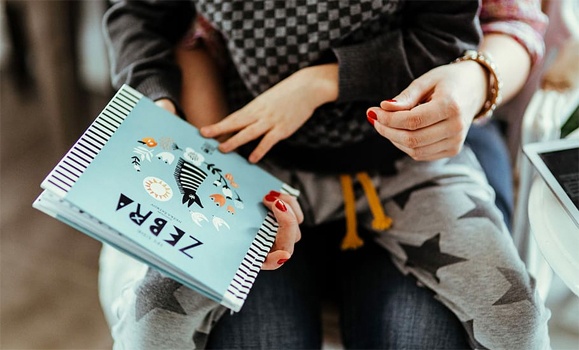Almost overnight, parents across the globe have found themselves in difficult and uncharted territory as they balance a multitude of challenges including working from home, job loss, and daycare and school closures. In addition to all of these changes, parents of school-aged children are also tasked with the added responsibility of facilitating at-home learning curriculum.
Managing all of these responsibilities can be difficult for parents, even during the best of times. But these challenges have been no doubt exacerbated by the COVID-19 pandemic.
To help parents find ways to manage what may feel like insurmountable tasks and challenges, we asked Dr. Adriana Wilson, an assistant professor in Dal’s Department of Psychiatry, to provide some tips on easing anxiety and managing all of the responsibilities parents find themselves juggling these days.
What advice do you have for parents who are at home during this COVID-19 pandemic trying to balance it all?
 There isn’t one right way for families to cope with the pandemic because we are all being required to do three things: to consider what is most important to our family, to be creative in how we meet those needs, and we are being required to be compassionate with ourselves and with others while we are trying to figure out how to do that.
There isn’t one right way for families to cope with the pandemic because we are all being required to do three things: to consider what is most important to our family, to be creative in how we meet those needs, and we are being required to be compassionate with ourselves and with others while we are trying to figure out how to do that.
There are some practical things that parents can build into their family routines that are helpful in grounding parents and kids, while facilitating connection. When we feel connected we feel safe, and when we feel safe we get along and communicate better. Â We are not going to get everything right, but if we can remember to incorporate as many of these five strategies as possible, we are going to be off to a good start:
- Eye contact: When we are distressed, many of us pull away from one another and reduce our eye contact. We can be intentional and make sure we are still looking at our children and holding their gaze through playful activities like blinking or staring contests. Eye contact is usually experienced as emotional presence, which has a calming effect that can be a really powerful thing for kids.
- Make sure there is an opportunity to maintain physical contact. We are a social species so physical contact is actually soothing. Things like cuddles, massages, play-wrestling, and making sure we are giving each other hugs as much as possible can help us down-regulate and clam our children.
- Build-in opportunities for some sort of physical discharge. Many of our children are also in fight, flight or freeze, just like we are right now. It’s important to make sure they have some sort of discharge for all of that energy, otherwise it may come out as bickering, stomach aches or acting-out behaviours. Building physical challenges into the day like who can hop on one foot across the living room, doing jumping jacks, playing tag or going for walks and bike rides are just a few examples.
- Make sure there is time for families to laugh together: It can’t be serious all of the time and play is very grounding for children of all ages. It also helps them process emotions. Doing things like watching funny videos, looking at memes or playing imaginative games are all really effective ways to do that and they don’t always have to require a lot of emotional bandwidth from parents.
- Breathe together: Breathing is very regulating for us. Any activities where we exhale longer than we inhale are especially beneficial in activating our rest and restore system. Things like singing together, blowing bubbles, blowing up balloons, meditating, yoga or box breathing are some examples of activities where we can regulate our breathing together.
Is it common for parents to feel like they are failing their children, employer, partners and themselves right now? What tips can you offer parents in managing these feelings?
Yes, we often feel like a failure when we feel like we are not meeting our own or others’ expectations. It feels badly because we are social creatures and we innately seek approval and connection.
One way to minimize this is to be realistic about what you say “yes” to — it can be helpful to make a list of the demands on your time and prioritize them.  As a parent, it is absolutely essential that time for self-care is on that list. If parents aren’t well, it impacts the children because parents are the leadership of the family, and we know that the resilience of the leadership, influences the resilience of everyone else in the system.
The other thing that can be helpful, is to be compassionate with yourself when you fall short. It can be useful to get into the habit of either writing or speaking to yourself as if you are speaking to your child or your closest friend when they fall short. This is important because kids learn to do what we do, they don’t necessarily do what we tell them to do. If they see us being harsh and critical with ourselves, they learn to do the same.
Ideally we want to teach our children it is human to struggle sometimes and to love ourselves through our struggles and failures so we can learn from them. Balancing our filter by also focusing on what we do right can help us do this.
We can also remember that guilt comes from love: it comes from a caring place and a desire to protect and repair. When we feel guilty we are tempted to focus on what we did wrong. Intentionally re-directing our focus to those loving feelings and how we can protect and repair the situation in question can help us channel feelings of guilt or failure more constructively.Â
What lessons can parents take away from this pandemic experience? Â
From my experience we have largely, as a North American society, evolved into a society of doers and fixers. Many of us are so challenged right now because we are being asked to just “be,” more than do and fix. Quite honestly, many people don’t really know how to be with themselves.
Interestingly, when we are not connected to ourselves, it’s like trying to listen to a radio station when we are not quite on the right frequency, so there is a lot of static. This makes it hard to understand and it is agitating. For many, this period of isolation and reduced busy-ness may allow families to tune into their own values and needs. It is a time where parents can model self-reflection, willingness to acknowledge and address feelings, and acting on their identified values for themselves and for their family.
The world is full of suffering and resilience. I think moving forward we are going to see a lot more resilience as people adapt by focusing more on clarifying their values and on connection. Â

